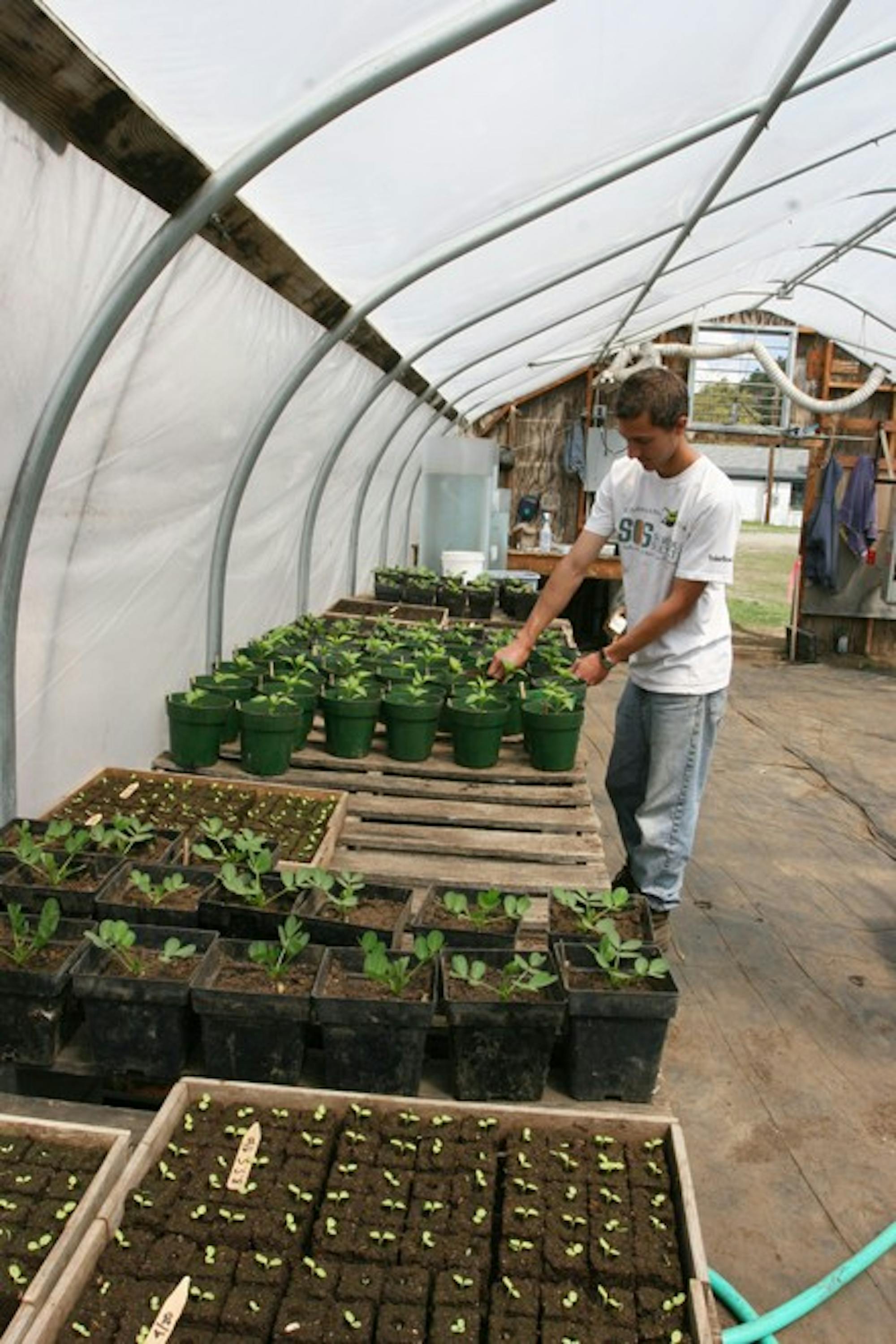Although the farm operates in some form throughout the year, Norah Lake '06, the farm's assistant manager, said that the Summer term is perhaps the farm's most exciting.
"I think one of the biggest ways it is different is because there are fewer people on campus. It's really possible for the '09s to feel like it's their farm," Lake said. "That creates a sense of ownership."
An integral part of the College's community for more than a decade, the farm aims to make students aware of agricultural life.
"The primary goal [of the farm] is education and to support the studies and research of all students at Dartmouth," farm manager Scott Stokoe said. "We need to plant certain crops to provide that experience."
One set of crops grown explicitly for educational purposes is the experimental Africa plot Hannah Rossman '08, one of the farm's summer interns, explained. This plot -- which contains crops such as tobacco, sunflowers, collards and peanuts -- is intended to familiarize students who are planning to go on the Foreign Study Program to Pretoria, South Africa with the crops that make up that nation's economy.
"No one in their right mind wold grow peanuts in New Hampshire," Rossman said.
The environmental studies program currently offers a course, entitled "Ecological Agriculture," which holds its lab sessions on the farm. The class is studying the effect of nitrogen on corn growth in the experimental corn plot.
Other products harvested at the farm include peas, beans, grains, lettuce, heirloom tomatoes, squash, basil peppers and eggplant.
While the farm does sell a portion of its harvested crops to the community, especially the farm-favorite cherry tomatoes, Stokoe emphasized that such sales are simply a "happy by-product" of the educational experience enjoyed by students.
"Our goal is not to grow crops for money," Stokoe said. "It's to create a portal into the real world of farming."
Lake, who took the position of assistant manager when the farm opened earlier this year, is responsible for planning what crops to grow and selling shares of the farm for community-supported agriculture. For the latter, Lake explained that, at the beginning of the season, the farm sells shares to local residents and each week buyers comes by and pick up a bundle of vegetables. Since taking over the responsibility, Lake has increased the number of shareholders from 10 to 22.
Another measure of the farm's success is its plan to build a second greenhouse.
"Part of it is we're doing a better job, and part of it is reallocation," Stokoe said of the new structure, which will feature solar heating.
The farm's origins date back to a policy report for an environmental studies program course in 1988 and it saw its first growing season in the spring of 1996.




